
Talk Talent To Me
Hired
Starring recruiting leadership from everywhere under the talent acquisition sun, Talk Talent To Me is a fast-paced rough-and-tumble tour through the strategies, metrics, techniques, and trends shaping the recruitment industry. Brought to you by your pals at Hired.
- 35 minutes 33 secondsSandoz VP Global Head of Culture Frank Kellenberg
In a world where workplace culture typically lives on posters and slideshows, how do you ensure it’s felt and lived every day? Joining us to explore this vital question is Frank Kellenberg, VP Global Head of Culture & Inclusion at Sandoz. With a career spanning leadership roles at Ingram Micro, Adidas, and Novartis, Frank is a culture champion and inclusion advocate with an inspiring mission: to bring humanity back to the workplace! In this episode of Talk Talent to Me, Frank shares the story of Sandoz’s cultural transformation following its spinoff from Novartis, including how the organization defined its own identity, shaped its unique values, and cultivated psychological safety to empower employees to speak up. From using employee feedback as a foundation to building a culture that drives both belonging and performance, Frank unpacks what it takes to ensure that company values aren’t just words but a way of working.
Key Points From This Episode:
-
Transitioning from Novartis to Sandoz: a strategic cultural shift to forge a unique identity.
-
Three questions that shaped Sandoz’s cultural evolution: what to discard, keep, and introduce.
-
What it looks like to ensure that company values are more than just a poster on the wall.
-
How Frank defines company culture using a three-layered housing metaphor.
-
Why openness and transparency play an important role in Sandoz’s interview process.
-
Difficulty attracting and retaining talent and other risks of neglecting workplace culture.
-
Insight into the significance of employee feedback (including former employees).
-
Psychological safety as a red flag signal for cultural issues in an organization.
-
Measuring cultural success through surveys, unscripted employee feedback, and more.
-
Going beyond curated narratives to uncover the true state of organizational culture.
-
How leadership engagement and informal conversations foster cultural alignment.
-
Frank's predictions about the growing importance of workplace culture.
Quotes:
“We integrated [Sandoz’s values and reflected them] in processes, tools, and performance management – so that, at the end, people could not just read it on a poster on the wall, ‘Here are our four values,’ but really experience it.” — Frank Kellenberg [0:08:32]
“You can have a great facade. You can have great architecture or a great house with great furniture. But if the people are not representing it, not living it, [or don’t] like to live in the house, then you have a problem. – This is how I would describe company culture.” — Frank Kellenberg [0:12:06]
“We came from a culture in which people had the feeling they [couldn’t] speak up. That was a signal for us that there was no psychological safety in the organization that people feel safe to speak up, to ask questions, to challenge the status quo.” — Frank Kellenberg [0:21:50]
“If an organization doesn’t care about [workplace culture], they will struggle.” — Frank Kellenberg [0:32:22]
Links Mentioned in Today’s Episode:
24 January 2025, 8:15 pm -
- 38 minutes 9 secondsExecutive Talent Director Dr. Hamira Riaz
Until recently, business or occupational psychologists have been rarities who mostly get hired as contracted consultants. But now, companies are beginning to see their undeniable value, and there’s a drive toward having an in-house business psychologist in all workplaces. Today we welcome Dr. Hamira Riaz, Executive Talent & Assessment Director. Dr. Hamira begins with how she switched from clinical psychology to HR before explaining why occupational psychologists should be an in-house norm for all businesses. We unpack the skills needed to be an expert in Dr. Hamira’s field, how the psychological contract between employees and businesses has changed through the years, the constant yo-yo of power between talent and employers, and why potential is an important subject to modern employees. We also learn about our shadow selves and how it affects our work, the role of resilience in breaking through shadows, how Dr. Hamira ensures that she gets the information she needs when speaking to business leaders, and AI’s role in the future of HR.
Key Points From This Episode:
-
Dr. Hamira Riaz describes her career pivot from clinical psychology to HR.
-
Why in-house occupational psychologists will become a staple in most businesses.
-
The skills and knowledge required to be an expert business psychologist.
-
How the psychological contract between employees and businesses has evolved.
-
Exploring the perpetual seesaw of power between talent and employers.
-
Why potential matters, and work motivations in a post-COVID society.
-
The environments in which potential is expressed and realized.
-
How our shadows affect our work, and how to assess and alleviate shadows in the office.
-
The role of resilience in breaking through shadows, and how to recharge your resilience.
-
What Dr. Hamira is listening for when speaking to business leaders about their needs.
-
Why she's very interested in how someone spent their 20s when making her valuations.
-
The future of HR with AI.
Quotes:
“That psychological contract between an employee and a company has fundamentally shifted. We want different things out of work than we ever did before. Our tolerance and threshold for what's okay in terms of the boundary between our personal life and professional life has shifted, and we're never going to go back.” — @HamiraRiaz [08:00]
“The Human Potential Movement has been around for decades, since the 60s. I've never known potential as a subject to be as much in the minds of HR professionals as it is now.” — @HamiraRiaz [10:16]
“We're all deserving of these opportunities at work, and we don't need to wait for a professional in the HR function to tell us that we are talent and tell us that we have potential.” — @HamiraRiaz [14:01]
“I love the gift of time. I don't think anybody loves you more than when you give them back some time.” — @HamiraRiaz [32:11]
Links Mentioned in Today’s Episode:
23 December 2024, 10:00 am -
- 38 minutes 39 secondsMosaic Senior TA Leader Orlando Haynes
Orlando shares insights from his many years of experience and how he is giving back to the career-searching community through his coaching. He outlines his advice on how to navigate the interview process, especially when you’re asked to do free labor as a candidate, and how to view things from both sides of the recruitment process. Orlando also tells us about his role at Mosaic, his approach to long-term talent development, how to implement a holistic talent strategy, and much more.
Key Points From This Episode:
-
Some background on today’s guest, Orlando Haynes, and his impressive CV.
-
How Orlando has given back to the career-searching community through his coaching.
-
What to expect from a 60-minute clarity call with Orlando.
-
The most common questions Orlando gets as a coach on his clarity calls.
-
Advice on how to construct your resume based on your audience.
-
Unpacking the interview process from the perspective of the interviewer and the candidate.
-
Reflections on unusual, unreasonable, and unethical interview processes.
-
What to do when you’re asked to do free labor as an interview candidate.
-
Orlando’s role at Mosaic Company and his approach to long-term talent development.
-
Balancing the need to have a position filled with investing in hires who need time to develop.
-
Advocating for a holistic talent strategy and how companies need to showcase themselves.
-
Orlando’s recruitment predictions for 2025.
Quotes:
“It's not that we assessed whether you're a good or bad candidate overall in that five or six seconds, but [it’s] that five [to] six seconds of review let us know to pick up the phone call to learn more.” — Orlando Haynes [09:21]
“The big thing for us [at Mosaic] is [the] relationship. It's more about the long-term relationship, but it's also the education piece, whether you're a good fit for the organization or not.” — Orlando Haynes [24:01]
“[It’s important] to showcase a day in the life, [for example] ‘what does the office look like?’ – People may not say it as much, but they consider those things. Job seekers consider the space and location where they want to work.” — Orlando Haynes [36:07]
Links Mentioned in Today’s Episode:
Book a 60 Minute Coaching call with Orlando
19 December 2024, 8:02 pm -
- 38 minutes 26 secondsTLDR Director of People & Talent Brandon Jeffs
Explaining the resilience of modern talent acquisition pros is Brandon Jeffs, the Director of People and Talent at TLDR – one of the largest newsletters in the world with daily summaries of the most interesting stories in startups, tech, and programming. Brandon’s career is focused on empowering the employee-employer relationship, and he walks us through the best practices for cultivating lasting relationships in the talent ecosystem. We discover why he started The Revol•TA Podcast and what he’s learned from the guests on his show before unpacking the doggedness of modern recruiters, how recruiters can improve their job security, whether it’s better to be a generalist or specialist, and what it takes to be an exceptional talent acquisition specialist. We also learn more about TLDR, Brandon’s protocol for making really fast hires, and the role of AI in the future of talent and recruiting.
Key Points From This Episode:
-
Brandon Jeffs explains what inspired him to start his show, The Revol•TA Podcast.
-
The best practices for forging meaningful relationships in the talent ecosystem.
-
What Brandon has learned from the guests who’ve appeared on his show.
-
Why recruiters are willing to do gritty and often thankless work.
-
Whether there’s a way for recruiters to be recession-proof in the likelihood of being laid off.
-
An age-old debate: Generalists versus specialists.
-
The characteristics of a great job offer
-
His protocol for understanding a candidate’s motivations, and why this matters.
-
Insight into the markings of a great recruiter.
-
Where preparation meets opportunity and the importance of timing.
-
The ins and outs of TLDR, with details on a particular serendipitous role fill.
-
Understanding Brandon’s method for making really fast hires.
-
How the future of talent acquisition is linked to the possibilities of large language models.
Quotes:
“The main driver for me is what can I give back to other people?” — Brandon Jeffs [04:50]
“The community is what brings us together. If you show up for other people, they will show up for you.” — Brandon Jeffs [11:52]
“If you have the fundamentals and the curiosity to learn new things, you can apply those to ways and roles that you may not think of.” — Brandon Jeffs [17:57]
“It’s really interesting to see how we position brand and prestige and pedigree in this larger game of capitalism.” — Brandon Jeffs [24:10]
“A great recruiter can fill roles on time but an exceptional one can create moments of serendipity.” — Brandon Jeffs [29:47]
Links Mentioned in Today’s Episode:
11 December 2024, 9:32 pm -
- 37 minutes 54 secondsEQ App CEO/Founder Marcus Sawyerr
How is AI reshaping the recruitment landscape, and what does it take to implement it effectively? Today, we sit down with returning guest Marcus Sawyerr to delve into the potential of AI-powered recruitment. Marcus is the Founder and CEO of EQ app, an AI-driven platform designed to connect people and knowledge to drive business growth. Marcus is a pioneer in leveraging artificial intelligence to enhance sales, marketing, and recruitment processes. Recognized as one of the top influential leaders in the staffing industry, Marcus has also served as an advisor to prominent venture capital firms and startups. In our conversation, we delve into the intricacies of deploying AI into an HR tech stack and how AI-powered recruitment strategies are shaking up the industry landscape. We discuss the reasons behind AI becoming front and center in the recruitment industry, explore the different use cases of AI in recruitment, and unpack the fundamentals of implementing AI in HR workflows. Marcus also explains the essential considerations of implementing AI, the paradigm shifts AI is creating in the industry, and what companies get wrong about it.
Key Points From This Episode:
-
Recent trends in AI and why the recruitment industry is beginning to embrace it.
-
The different potential use cases of AI within the overall hiring workflow.
-
Common misconceptions of AI in recruitment and missed opportunities within the industry.
-
How AI is disrupting traditional recruitment workflows and enhancing productivity.
-
Why AI is not a "silver bullet" for problems and why a deep understanding of it is vital.
-
The hype cycle around AI and its role in connecting people to the technology.
-
Ways to distinguish between valuable AI solutions and overhyped tools.
-
Insight into the internal and external company aspects of implementing AI.
-
Marcus’ approach to identifying workflow gaps and building trust with teams and the C-suite.
-
The potential of AI to enhance workflows and help grow small businesses.
-
Recommendations for recruitment leaders to begin deploying AI strategies.
-
Final takeaways and an update on the EQ AI Community.
Quotes:
“The difference now is that AI allows a new workflow and a new way of doing things, which you may not have considered [before].” — @Marcussawyerr [0:07:55]
“The way that we work and interact with machines — is evolving at a rapid pace that we haven’t seen before.” — @Marcussawyerr [0:15:46]
“It’s really about thinking how you use AI technology to perform better in real life.” — @Marcussawyerr [0:29:00]
“If you are inside of an organization, you’ve got to figure out how can you drive [AI] proactively or do something else on the side to help you do extra and do more.” — @Marcussawyerr [0:32:14]
Links Mentioned in Today’s Episode:
'EQ Community Founder Marcus Sawyerr'
27 November 2024, 10:10 pm -
- 35 minutes 51 secondsQuantum Motion Head of Talent & People Christine Ng
Christine shares how her background has enabled her to treat with the most technical talent in the market, and details her approach of developing young talent as well as luring niche talent away from academia.
Key Points From This Episode:
-
A bit about Christine’s career and how she landed at Quantum Motion.
-
Christine tells us about the engineering company she was part of.
-
Her opinion on being a generalist versus specializing in something.
-
A breakdown of Quantum Motion, what they do, and their hardware search.
-
Christine tells us about the kinds of people they hire at Quantum Motion.
-
The two very different ways of hiring for a startup (academia and industry).
-
How they develop the talent that they need on their own as well.
-
Christine tells us how she can tell if someone has used ChatGPT.
-
Some advice for anyone wanting to apply for a role in quantum.
-
What they are looking for when recruiting at Quantum Motion.
Quotes:
“The reality is, if there’s no hardware, there is no quantum computing.” — @xtine08 [0:20:28]
“It’s tricky to hire because we do get a lot of interest.” — @xtine08 [0:31:06]
“Stay tuned! I think in the next two or three years there will be a lot more opportunities in the [quantum] space.” — @xtine08 [0:32:06]
“If you’re applying for a role in quantum, really think about what about quantum that excites you because there’s so much hype around this area as well.” — @xtine08 [0:33:09]
Links Mentioned in Today’s Episode:
15 November 2024, 3:28 pm -
- 31 minutes 12 secondsMunich Re Head of TA, Europe & Latin America Nuria Munoz
Local recruiting for a global brand is not always as synchronous as it could or should be. Joining us with the solutions to this problem is the Head of Talent Acquisition for Europe and Latin America at Munich Re, Nuria Munoz. We discuss the importance of large company gatherings and how to maximize that time before unpacking the value of building both internal and external work relationships. Nuria then describes the efforts of her team in merging local hires with the company’s global vision, the many hats she has to wear in her current role, how she plans on improving the traditional way of making hires in insurance, and the undeniable importance of building a talent pipeline for your business. We end with Nuria’s protocol for cultivating interest in the insurance industry, Munich Re’s approach to succession and workforce planning, the ins and outs of what our guest has dubbed “the skills economy”, and her final words of wisdom for those hoping to follow a similar career path.
Key Points From This Episode:
-
Nuria Munoz unpacks the global Munich Re team after the company’s recent conference.
-
Making the most of large company gatherings and the importance of building relationships.
-
How Nuria and her team merge local hires with the company’s global vision.
-
The many hats she wears as the Head of Talent Acquisition for Europe and Latin America.
-
Why the traditional way of making hires in insurance is unsustainable.
-
Exploring Munich Re’s approach to its relationships with talent agencies.
-
Industry branding: how Nuria cultivates interest in insurance.
-
The ins and outs of succession and workforce planning at Munich Re.
-
Unpacking the skills economy: skills matching and transferable skills.
-
Nuria’s parting words of wisdom and advice.
Quotes:
“I’m trying [to get] the [talent] agencies [to] change their business models so that they bring me something that is different; that is more sustainable long-term.” — @NuriaLorMun [0:12:05]
“When you start looking at ‘what’s next, what’s next, what’s next,’ sometimes you miss the ‘right now.’” — @NuriaLorMun [0:28:47]
Links Mentioned in Today’s Episode:
31 October 2024, 7:58 pm -
- 34 minutes 43 secondsGentrack Chief People Officer Fran Caldwell
It is a leader’s responsibility to create the best possible environment for their team and there’s no better way to get insight into how to do that than leveraging employee engagement. Tuning in to this episode of Talk Talent to Me, you’ll hear all about our guest, CPO of Gentrack, Fran Caldwell, why she has such a positive attitude towards her work, the responsibilities she has at her company, and the impact she has made at Gentrack. We delve into the critical nature of employee engagement before discussing the importance of building trust among employees in order to gain these insights from employee engagement. Our guest goes on to talk about key motivators for an engaged workforce and how that varies between generations. Fran even shares the metrics she uses at Gentrack to measure the success of employee engagement and how to evaluate them. Finally, hear how you can handle negative engagement survey results and get some incredible advice about creating a career as a CPO.
Key Points From This Episode:
-
The importance of being proud of your role in HR
-
Fran shares how she sees her responsibility at Gentrack
-
How Fran makes sure employees trust the organization
-
The key motivators for an engaged workforce
-
How messaging needs to be adjusted for different generations
-
Fran shares her strategy for measuring employee engagement success
-
Fran tells us how she handles negative results from surveys
-
Our guest gives advice for listeners wanting to forge a career like her own
Quotes:
“If you work in the people space, every day is an opportunity. And if you focus on it being challenging and in a negative way, well then frankly, how do you get out of bed every day?” — Fran Caldwell [0:02:31]
“When you come into a new business or when you’re in these roles, you absolutely need to be led by insights and the only way you’re going to get these insights is by asking a lot of questions but importantly, listening to the answers.” — Fran Caldwell [0:10:00]
“Engagement and productivity metrics are intrinsically linked.” — Fran Caldwell [0:17:15]
Links Mentioned in Today’s Episode:
30 October 2024, 6:45 pm -
- 33 minutes 27 secondsRemote.com Director of TA Anastasia Pshegodskaya
Anastasia Pshegodskaya is the Director of Talent Acquisition at Remote—a global employment platform that eliminates barriers to international hiring so that great companies can work with great people—and she begins our conversation by explaining why she’s always been more susceptible to working from home. We unpack Amazon’s recent back-to-the-office mandate, why many other companies are trying to get their employees back into the office space, how trust is essential to creating successful remote work environments, and remote work limitations to be aware of. We also discover how Anastasia and her team onboard talent remotely, the talent-specific process that keeps changing as a company evolves, the role of AI at Remote, and why “changing lives” is one of the main reasons for Anastasia’s joy at work.
Key Points From This Episode:
-
Anastasia Pshegodskaya details her work-from-home lifestyle even before joining Remote.
-
Her thoughts on Amazon’s back-to-office mandate, and why many others are doing the same.
-
The importance of trust in building a successful remote work environment.
-
Exploring the limitations of remote work and when it’s more beneficial to be in the office.
-
How Anastasia onboards talent remotely and still makes them feel like part of the team.
-
Her journey to joining Remote, what her role entails, and some notable successes so far.
-
How talent-specific processes change and evolve in line with a company’s growth.
-
A closer look at Anastasia’s candidate application review process.
-
The role of AI, and how the Remote team ensures they’re using AI responsibility.
-
Why HR and other people-focused teams are happy to adopt evolving AI tools.
-
Anastasia explains what she loves most about her job.
Quotes:
“For great talent; for candidates; job seekers, remote work remains a thing. This is something that inspires them and what they want to have in their lives, and I think that it really comes down to flexibility and having the ability to choose where you work and how you work.” — Anastasia Pshegodskaya [0:04:22]
“There is a common misconception, in my opinion, that remote teams lose productivity – the customers that we’ve been serving don’t see any productivity loss. On the opposite, they see that the switch to remote work enables more efficient collaboration and communication.” — Anastasia Pshegodskaya [0:05:29]
“It comes down to the fact that you just need to trust the people that you hire.” — Anastasia Pshegodskaya [0:06:08]
“Every day, my team is changing someone’s life, and I do think that we’re doing this in a good way.” — Anastasia Pshegodskaya [0:31:18]
Links Mentioned in Today’s Episode:
28 October 2024, 7:07 pm -
- 35 minutes 3 secondsHarvard Business Publishing CHRO Angela Cheng-Cimini
The mental wellbeing of employees is a crucial part of the overall success of any organization. Today on Talk Talent To Me, we’re joined by the CHRO of Harvard Business Publishing, Angela Cheng-Cimini to discuss self-advocacy, career development, and most importantly, mental health. Angela shares how her father encouraged her to get into HR, why you (and your boss) need to advocate for yourself without being braggadocious, the importance of elevator pitches, ways to enhance your sphere of influence, be more visible at work, and so much more! We delve into the Mental Health First Aid Program and her current focus on mental health at Harvard Business Publishing. We even talk about how to measure success in mental health programs and what to do when a company doesn’t prioritize the mental wellbeing of its employees. Finally, our guest shares some pearls of wisdom about reflecting on your career, finding motivation, and knowing when it’s time to move on.
Key Points From This Episode:
-
How Angela’s dad inspired her career path to become CHRO of Harvard Business Publishing.
-
The importance of self-advocacy and the line between advocacy and braggadocious-ness.
-
Angela encourages everyone to practice their elevator pitches.
-
How to enhance your sphere of influence in your organization.
-
Why making the case for your value is a shared responsibility between you and your boss.
-
What Angela is busy with right now: the mental health of her employees!
-
How to handle working in organizations that do not prioritize mental health.
-
Angela explains what mental health first aiders are and what they do.
-
The three business units in Harvard Business Publishing and her role in each unit.
-
Angela tells us about the role they are recruiting for at the moment.
-
How to measure the success of employee mental health programs.
-
Angela shares how she reflects on her own career motivations.
Quotes:
“Know what’s important to your boss.” — Angela Cheng-Cimini [0:10:17]
“The bigger you enlarge your sphere of influence, the more likely you are to have allies in the organization and people who will think of you when there’s a piece of work that you can easily slot into.” — Angela Cheng-Cimini [0:10:25]
“Showing up for work is not just about your success, but how you make others successful.” — Angela Cheng-Cimini [0:12:11]
“[There’s no] single indicator. It’s a whole host of things that feed into whether or not employees can show up and be their best every day.” — Angela Cheng-Cimini [0:26:29]
Links Mentioned in Today’s Episode:
Angela Cheng-Cimini on LinkedIn
‘How to Become More Visible at Work’
Mental Health First Aid Program
24 October 2024, 9:00 am -
- 35 minutes 25 secondsPlay Ventures Head of Talent Joe Burridge
Venture capitalists are far more collaborative among each other than one may think, and today, we learn how this willingness to share ideas enticed today’s guest to join his current company. Joe Burridge is the Head of Talent at Play Ventures – a venture capitalist firm that loves helping ambitious and passionate entrepreneurs to fulfill their dreams – and he begins our conversation by walking us through his latest career developments since his last appearance on Talk Talent To Me in 2019. After musing on the importance of talent professionals upskilling themselves by listening to podcasts like this one, we discuss the merit of going full-freelance in today’s economic climate, when and how Joe knew that he and his employer were on the same page, the importance of having vast talent pools and making the right hires, and the pros and cons of joining a startup as a talent professional. To end, Joe explains what we could be doing more of to embrace and encourage collaborative work environments.
Key Points From This Episode:
-
How Joe Burridge's career has developed since his last appearance on this podcast in 2019.
-
Whether he regarded his contracted work as a temporary or permanent solution post-layoff.
-
His experience of working in-house and leading a team versus doing more consultative work.
-
A brief interlude on the value of listening to podcasts like this one as talent professionals.
-
When and how Joe knew that his concerns aligned with his employer's needs.
-
A case study from his career, highlighting the importance of talent and making the right hires.
-
The pros and cons of joining a startup.
-
Joe's recruiting approach, and the trends he sees in current candidate pools.
-
What we can learn from the (surprisingly) collaborative nature of venture capitalists.
Quotes:
“In North America, for the most part, if you get laid off it's a fairly immediate thing. Thankfully, in the UK, layoffs take weeks, sometimes months. So, you've got quite a bit of breathing room to figure out what you're going to do next.” — @JoeFindsTalent [0:07:04]
“If you spend your free time listening to a recruiting podcast, I think you're probably a pretty good recruiter. It signals to me that you really care about getting better at your job.” — @robstertweets [0:13:55]
“Yes, there's an abundance of talent available, but you need to be more honed into hiring for culture than ever before when you've got such a variety to choose from.” — @JoeFindsTalent [0:24:32]
Links Mentioned in Today’s Episode:
Episode: Senior Recruiter, EA Joe Burridge
29 May 2024, 8:25 pm -
- More Episodes? Get the App
Your feedback is valuable to us. Should you encounter any bugs, glitches, lack of functionality or other problems, please email us on [email protected] or join Moon.FM Telegram Group where you can talk directly to the dev team who are happy to answer any queries.
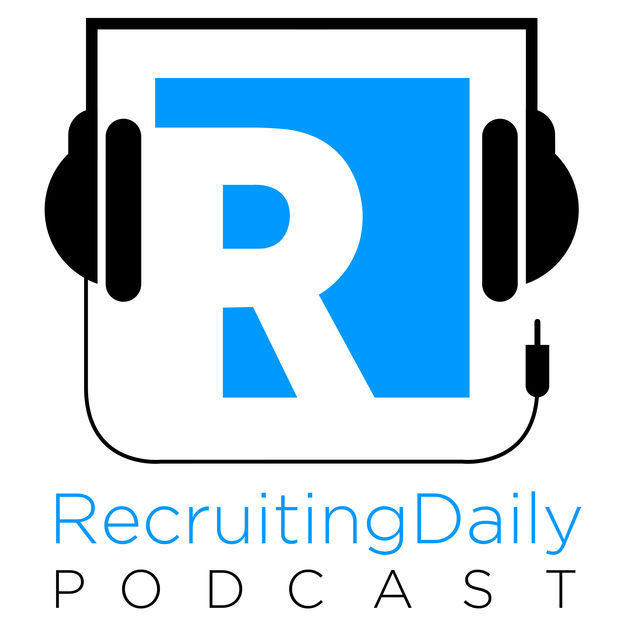 RecruitingDaily
RecruitingDaily
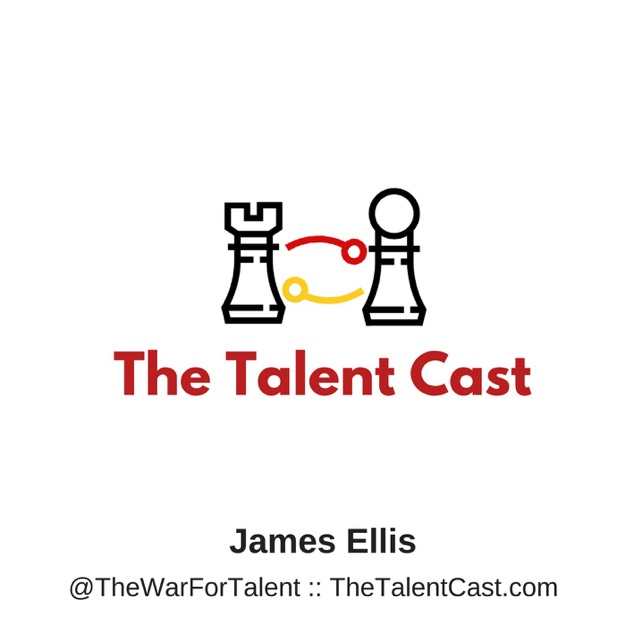 The Talent Cast
The Talent Cast
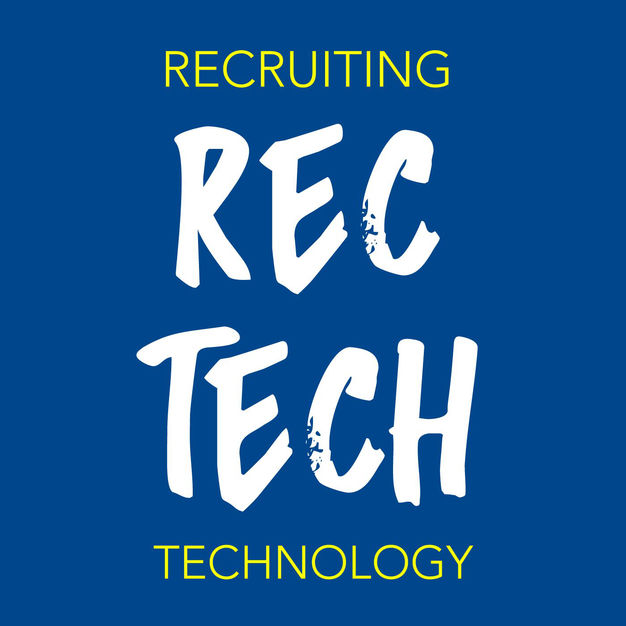 RecTech: the Recruiting Technology Podcast
RecTech: the Recruiting Technology Podcast
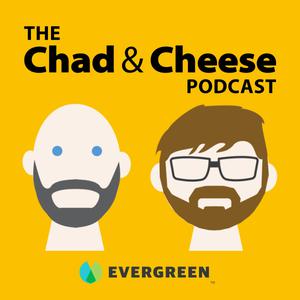 The Chad & Cheese Podcast
The Chad & Cheese Podcast
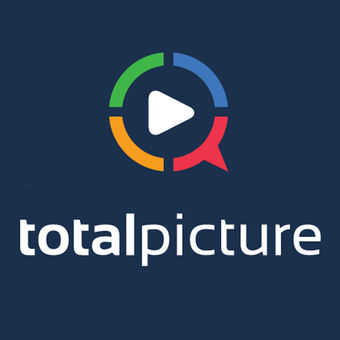 TotalPicture: Talent Acquisition, HR Tech, Careers, Leadership, Future of Work
TotalPicture: Talent Acquisition, HR Tech, Careers, Leadership, Future of Work
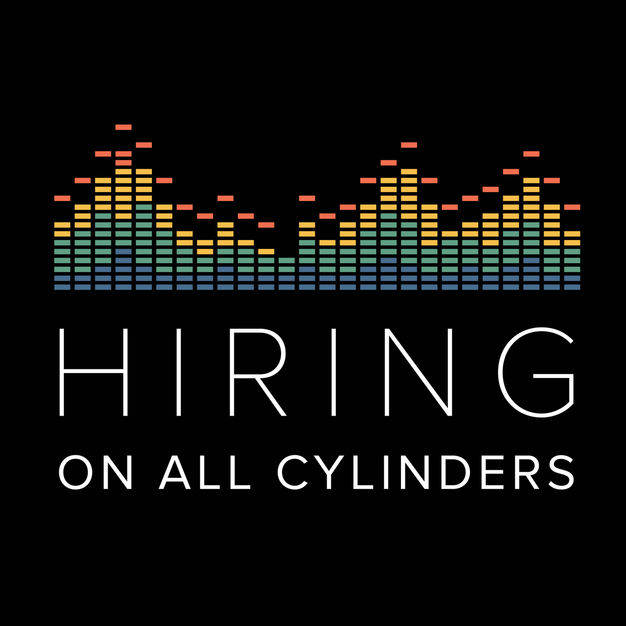 Hiring On All Cylinders
Hiring On All Cylinders